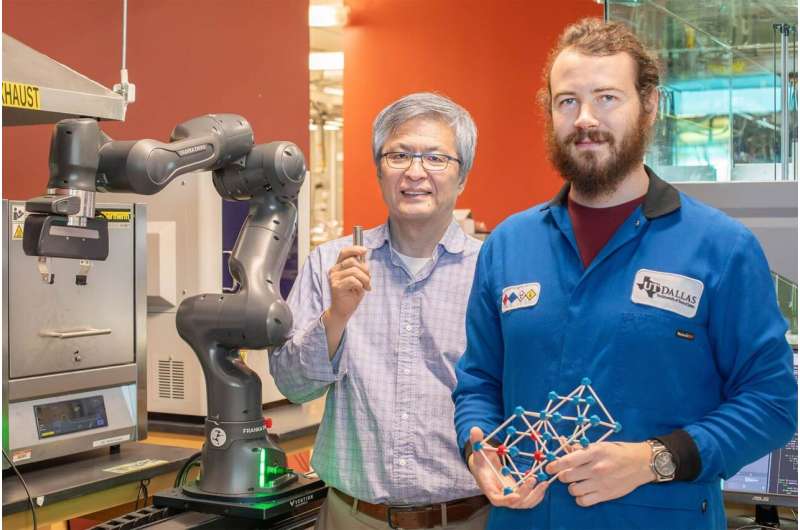Lithium nickel oxide (LiNiO₂) has shown great potential for powering the next generation of lithium-ion batteries, promising longer battery...
Vous n'êtes pas connecté
- English
- Français
- عربي
- Español
- Deutsch
- Português
- русский язык
- Català
- Italiano
- Nederlands, Vlaams
- Norsk
- فارسی
- বাংলা
- اردو
- Azərbaycan dili
- Bahasa Indonesia
- Հայերեն
- Ελληνικά
- Bosanski jezik
- українська мова
- Íslenska
- Türkmen, Түркмен
- Türkçe
- Shqip
- Eesti keel
- magyar
- Қазақ тілі
- Kalaallisut ; kalaallit oqaasii
- Lietuvių kalba
- Latviešu valoda
- македонски јазик
- Монгол
- Bahasa Melayu ; بهاس ملايو
- ဗမာစာ
- Slovenščina
- тоҷикӣ ; toğikī ; تاجیکی
- ไทย
- O'zbek ; Ўзбек ; أۇزبېك
- Tiếng Việt
- ភាសាខ្មែរ
- རྫོང་ཁ
- Soomaaliga ; af Soomaali
Rubriques :
 Maroc - TECHXPLORE.COM - Energy & Green Tech - 12/Feb 17:32
Maroc - TECHXPLORE.COM - Energy & Green Tech - 12/Feb 17:32
Engineers identify key obstacle to longer-lasting batteries
Lithium nickel oxide (LiNiO2) has emerged as a potential new material to power next-generation, longer-lasting lithium-ion batteries. Commercialization of the material, however, has stalled because it degrades after repeated charging.
Articles similaires
Why Traditional Extinguishers Fail on Lithium Battery Fires
You might assume that a standard fire extinguisher—the kind found in homes and workplaces—would be effective against lithium-ion battery fires....
Sodium-ion batteries face greater safety hazards due to sodium clusters, study finds
A new study led by the Qingdao Institute of Bioenergy and Bioprocess Technology of the Chinese Academy of Sciences has identified significant safety...
MRI reveals real-time metal-ion dissolution in lithium batteries, offering insights into performance decline
Many of the devices that make modern life convenient and efficient rely on rechargeable batteries. Lithium-ion batteries, one of the more common types...
Blackout Nation: How Myanmar’s Energy Crisis Is Crippling Lives – Analysis
By Htet Khaing Min In Myanmar, darkness no longer just falls after sunset—it has become an everyday reality, an uninvited guest that lingers...
VSPC eyes cathode powder global supply chain with $30 million ARENA grant
Queensland manufacturing company VSPC has been granted $30 million non-recourse funding to commercialise a new process for manufacturing cathode...
Why Donald Trump’s Obsession With Greenland Is All About China – OpEd
By Joshua Frank In early January, Donald Trump Jr.’s private plane landed on a snowy airfield in Greenland. There was little fanfare upon his...
High-performance sodium-ion cathode paves the way for lithium-ion battery alternative
For decades, scientists have sought ways to counter our dependence on lithium-ion batteries. These traditional, rechargeable batteries energize...
Definition of Battery Energy Storage System
A BESS is a modular, electrochemical framework to store energy from the grid or distributed generation sources in rechargeable battery modules with...
Les derniers communiqués
-
Adobe Brings Conversational AI to Trillions of PDFs with the New AI Assistant in Reader and Acrobat
Adobe - 21/02/2024
-
Laura Frigenti takes the Helm as Chief Executive Officer of the Global Partnership for Education
Global Partnership for Education - 05/12/2022
